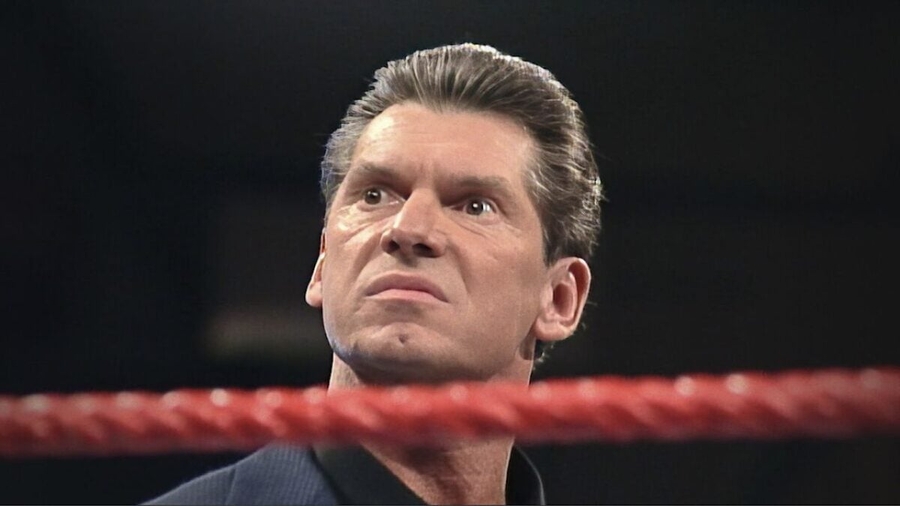Netflix’s new documentary series, Mr. McMahon, aims to pull back the curtain on one of the most influential and controversial figures in professional wrestling—Vince McMahon.
LOS ANGELES, CA, October 25, 2024 /24-7PressRelease/ — Across six episodes, the series attempts to capture the rise, reign, and personal complexities of the man behind WWE. However, when the final credits roll, the series leaves viewers with more questions than answers, as the real Vince McMahon remains an elusive figure.
An Enigmatic Figure
From the outset, Mr. McMahon presents the challenge of understanding a man who has spent much of his life blurring the lines between fiction and reality. Vince McMahon’s public persona, both in the ring and in the boardroom, is larger than life. He has been the face of professional wrestling for decades, not only revolutionizing the industry but also embodying it.
But what about the man behind the character? The series suggests that McMahon’s public persona may be all there is. It paints a picture of someone for whom the wrestling business isn’t just a job or a passion—it’s his entire life. McMahon’s personal relationships, emotions, and even his humanity seem secondary to “the business.” It’s as though McMahon has become so intertwined with his WWE empire that there’s little distinction between his on-screen villainous character and his real-world self.
Missed Opportunities for Depth
One of the documentary’s biggest weaknesses is its failure to dig deeper into McMahon’s childhood and the psychological scars that may have shaped him. McMahon didn’t meet his biological father until he was 12 years old, and his upbringing was marked by allegations of abuse at the hands of his stepfather and mother. These early experiences are briefly mentioned, but the series never explores how they may have influenced McMahon’s obsessive drive and apparent detachment from a “normal” life.
For a figure as complex as McMahon, a closer examination of his childhood trauma could have provided invaluable insights into his motivations and behavior. Yet, the series skirts around these issues, leaving viewers to wonder if McMahon’s intense focus on his wrestling empire is a result of deep psychological damage or if it’s simply who he is.
A Production Curveball
During the making of Mr. McMahon, the production faced an unexpected challenge when McMahon was hit with serious allegations of sexual assault and sex trafficking, tied to a lawsuit from a former WWE employee. This bombshell dropped in the middle of filming, and while the series attempts to address it in its final episode, the result feels rushed and incomplete.
Because much of the documentary’s interviews with past and present WWE wrestlers were conducted before the allegations became public, there’s a noticeable lack of commentary from those closest to McMahon about the accusations. The series tries to pivot, but the final episode lacks depth, leaving viewers with more questions about the ongoing investigation and its impact on McMahon’s legacy.
Is It Worth Watching?
Despite its shortcomings, Mr. McMahon is still a must-watch for wrestling fans, particularly those who have followed McMahon’s career closely. While long-time fans may not learn much that they didn’t already know—most of the documentary’s material covers well-trodden ground—there’s value in hearing McMahon’s perspective on the key events that have shaped WWE over the last four decades.
The series also offers never-before-seen backstage footage, giving fans a rare glimpse behind the scenes of some of WWE’s biggest moments. Seeing McMahon in candid settings, interacting with wrestlers and producers, is fascinating, even if it doesn’t reveal much about his inner thoughts.
For those who aren’t wrestling fans, Mr. McMahon may still be worth watching for the sheer shock value. McMahon’s behavior—both in the ring and out—is nothing short of outrageous. His ruthless business tactics, relentless focus on expanding WWE, and bizarre personal habits make for compelling viewing, even for those unfamiliar with the world of professional wrestling.
Key Moments and Characters
One of the most interesting aspects of Mr. McMahon is the insight provided by Paul Heyman, a long-time WWE personality and someone who isn’t afraid to speak candidly. Heyman shares a shocking story about Shane McMahon pitching an idea to his father, only for Vince to hand Shane a knife and tell him he could have his way—if he was willing to kill him for it. Heyman’s anecdotes offer a rare, unfiltered glimpse into McMahon’s complicated relationship with his son, and his refusal to let anyone challenge his authority, even family.
Shane McMahon, in fact, comes across as the most sympathetic figure in the documentary. He’s portrayed as a man deeply yearning for his father’s approval—something that Vince seems incapable of giving. The dynamic between the two men is one of the more emotionally charged elements of the series, revealing the emotional toll of growing up in the shadow of Vince McMahon’s empire.
On the other hand, interviews with big names like The Rock, John Cena, and Stone Cold Steve Austin don’t add much to the story. Their comments feel rehearsed, with many wrestlers clearly still playing a role, even while trying to act candid. Hogan’s presence, too, feels unnecessary, especially given his past controversies, including racist remarks that tarnished his reputation.
The Gaps in the Story
One glaring omission from the documentary is any real exploration of McMahon’s infidelities. The series frequently mentions his affairs and the fact that sex has been a consistent part of his public and private persona, yet Linda McMahon, Vince’s wife, is never asked about the state of their marriage or how she’s dealt with his cheating. This feels like a missed opportunity to explore the personal side of McMahon, especially considering how much of his life has played out in public view.
Additionally, the documentary doesn’t manage to get reactions from any of the wrestlers about the recent allegations against McMahon. Whether this was due to legal constraints or reluctance on the part of the wrestlers, the absence is noticeable and leaves viewers wanting more.
Final Thoughts
While Mr. McMahon does an excellent job covering the history of WWE’s on-air product, it ultimately fails to fully unravel the mystery of Vince McMahon. The documentary gives a comprehensive look at his impact on professional wrestling but stops short of delivering the deeper, more personal insights many viewers may have hoped for.
For wrestling fans, the series is still worth watching for its rare backstage footage and McMahon’s unique, often bizarre perspective on his life’s work. For non-wrestling fans, it’s a disturbing and fascinating portrait of a man whose life has been consumed by the business he created—one that has left him as much a character as the ones he brings to life on-screen.
In the end, Mr. McMahon offers an intriguing, if incomplete, portrait of the man who built WWE, leaving viewers to decide for themselves whether Vince McMahon is more complex than the character he’s portrayed for decades.
—
For the original version of this press release, please visit 24-7PressRelease.com here





